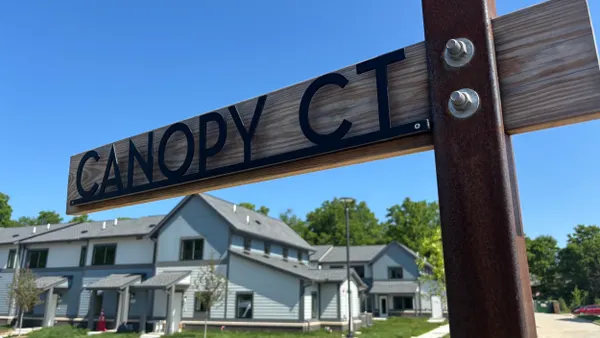Dive Brief:
- California is giving a total of nearly $131 million to 18 local governments to help them clear encampments of people experiencing homelessness and provide services for those individuals, Gov. Gavin Newsom announced Friday.
- The state will also reimburse local governments for clearing encampments on state land, an effort it says will streamline the cleanup of such areas.
- The awards follow a summer of Newsom cracking down on both encampments themselves and local governments that don’t make measurable progress in reducing homelessness in their communities.
Dive Insight:
Getting people out of encampments and into housing is “important and urgent work that requires everyone to do their part,” Newsom said in a statement Friday. “The state has committed more than $27 billion to help local governments tackle the homelessness crisis — and we want to see $27 billion worth of results.”
Newsom warned in August that he plans to direct state funding away from cities and counties that don’t do enough to clean up encampments. Before that, in July, he ordered state agencies to clear encampments on state land following a U.S. Supreme Court decision that paved the way for local anti-camping laws.
The newly announced awards range from $2.7 million for Pasadena to $18 million for Sacramento. However, the money comes with some strings attached: Cities and counties must be in compliance with state-mandated plans describing how a local government will meet existing and projected housing needs. Local governments must also adhere to all state planning, permitting, entitlement, fair housing and homelessness laws. The state says it may claw back awarded funds if they don't.
California communities have recently taken a variety of approaches to addressing homelessness. Los Angeles, for example, is pursuing a “master leasing” program to rent out blocks of housing units and sublease them to tenants who might struggle to qualify for other rentals due to a history of homelessness or other issues. Meanwhile, San Francisco is taking a relocation-first approach, meaning city and certain nonprofit workers must offer to relocate people experiencing homelessness to other cities before providing services such as housing and shelter.











